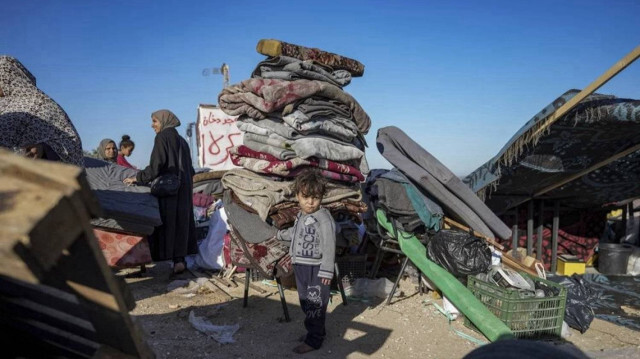
'Limited fuel availability continues to hamper health interventions at hospitals, primary healthcare facilities, as well as ambulance referrals,' says spokesperson
The World Health Organization (WHO) on Friday warned that the continued closure of the Rafah crossing and the lack of access to the Kerem Shalom crossing are "increasing the risk of shortages in medical supplies and preventing the rotation of emergency medical teams (EMTs) in Gaza."
"The last medical commodities entered Gaza before May 6. We've managed to deliver some supplies, but much more is needed, especially fuel that is needed to run hospitals," spokesperson Tarik Jasarevic told a UN press briefing in Geneva.
Jasarevic noted that health facilities and partner operations require around 1.4-1.8 million liters (370,000-475,500 gallons) of fuel per month.
"Limited fuel availability continues to hamper health interventions at hospitals and primary healthcare facilities, as well as ambulance referrals," he said.
He added that as of Thursday and since the border crossing closure, "only 159,000 liters (42,000 gallons) have entered Rafah for all the humanitarian partners."
"This is clearly not sufficient," he stressed.
The spokesperson said the WHO had to suspend missions to the north for "a week" due to insecurity, lack of availability of fuel, and movement of EMTs.
About the health facilities located within blocks included in evacuation orders, Jasarevic said five hospitals, with two in Rafah and three in northern Gaza, nine primary health centers, with four in Rafah and five in northern Gaza, and 37 medical points -- 21 in Rafah and 16 in northern Gaza -- are among those facilities.
Last week, the Israeli army invaded the eastern section of Rafah and captured the Palestinian side of the Rafah border crossing, a vital route for humanitarian aid into Gaza, and closed it.
Israel has continued its brutal offensive on the Gaza Strip despite a UN Security Council resolution demanding an immediate cease-fire in the enclave.
More than seven months into the Israeli war, vast swathes of Gaza lay in ruins amid a crippling blockade of food, clean water, and medicine.
Israel is accused of “genocide” at the International Court of Justice, which has ordered Tel Aviv to ensure its forces do not commit acts of genocide and take measures to guarantee that humanitarian assistance is provided to civilians in Gaza.

